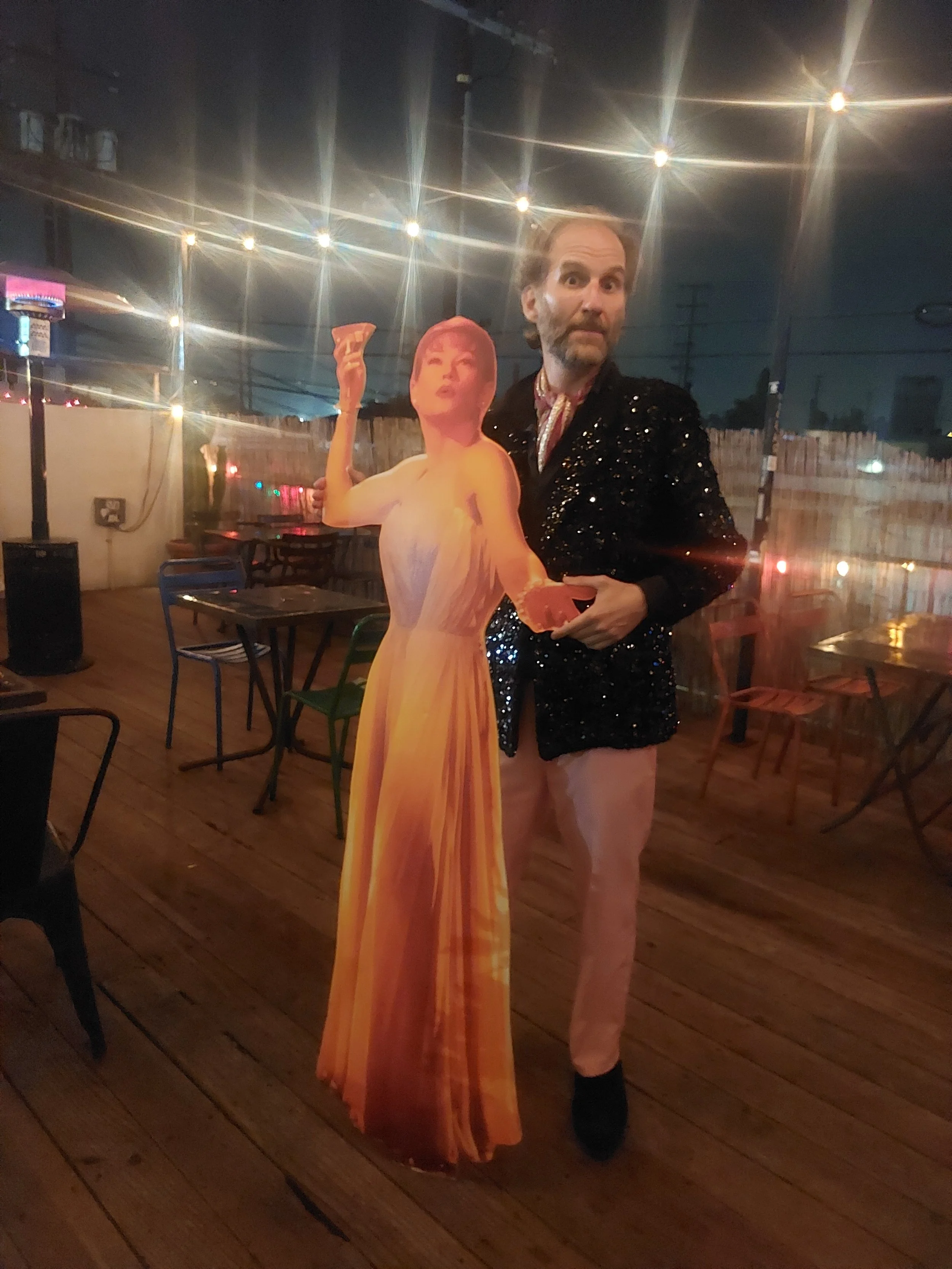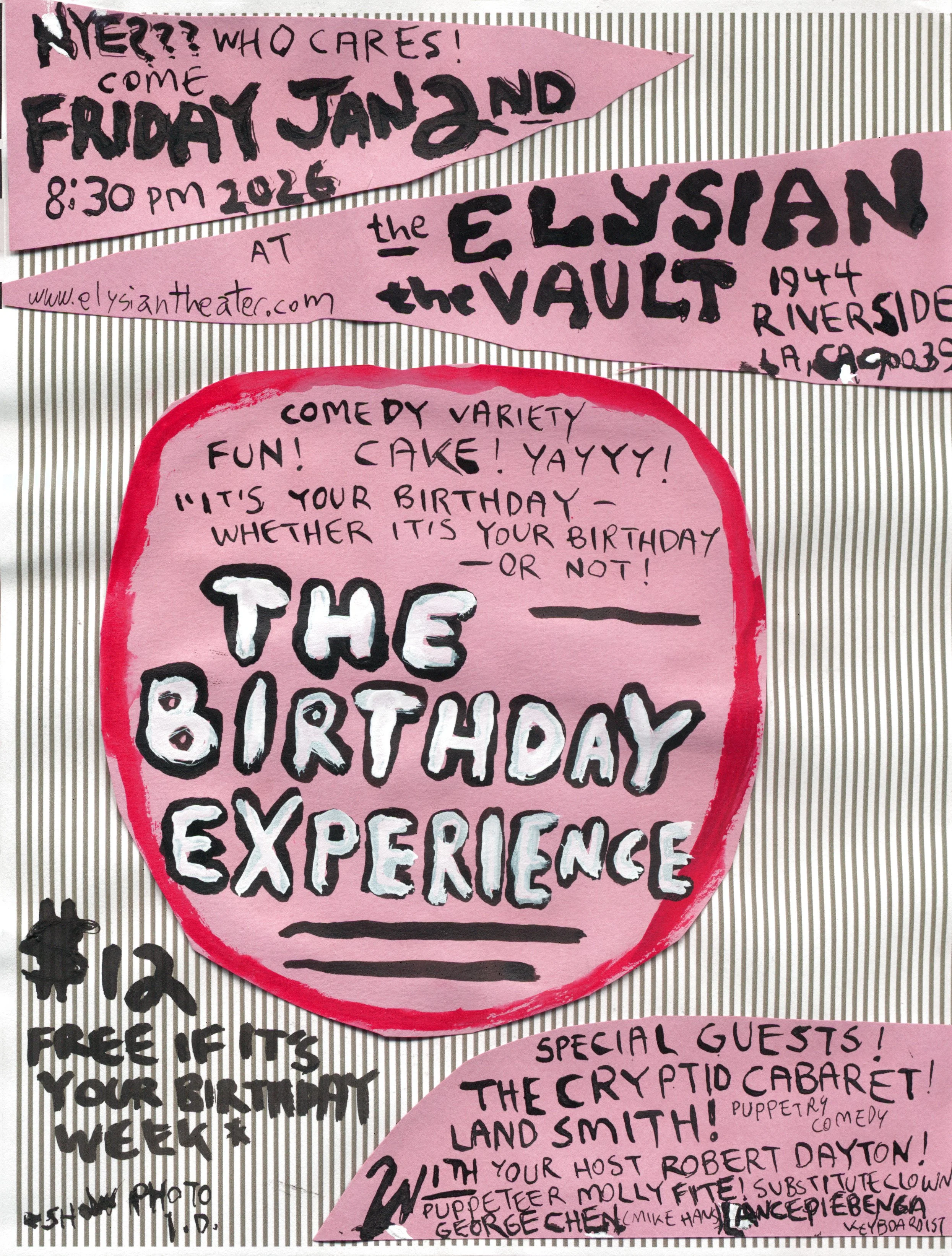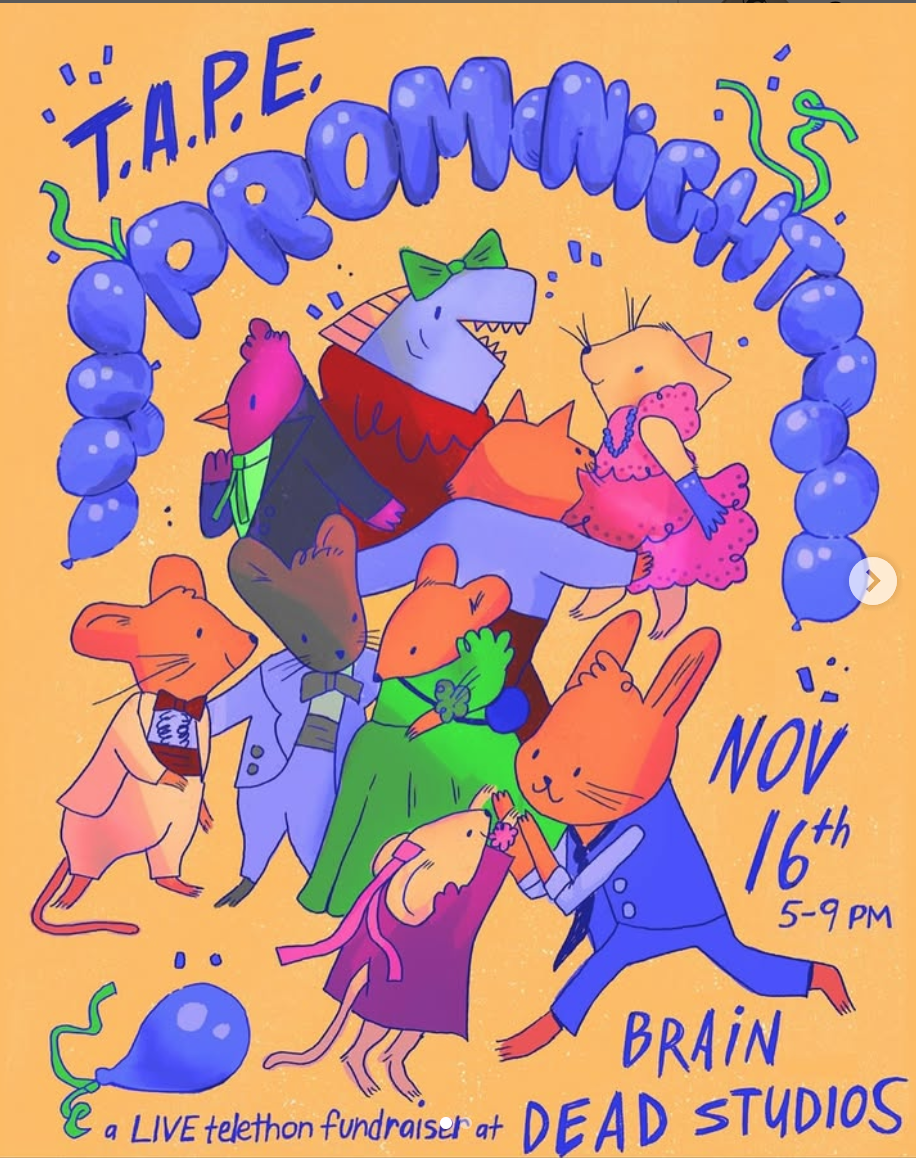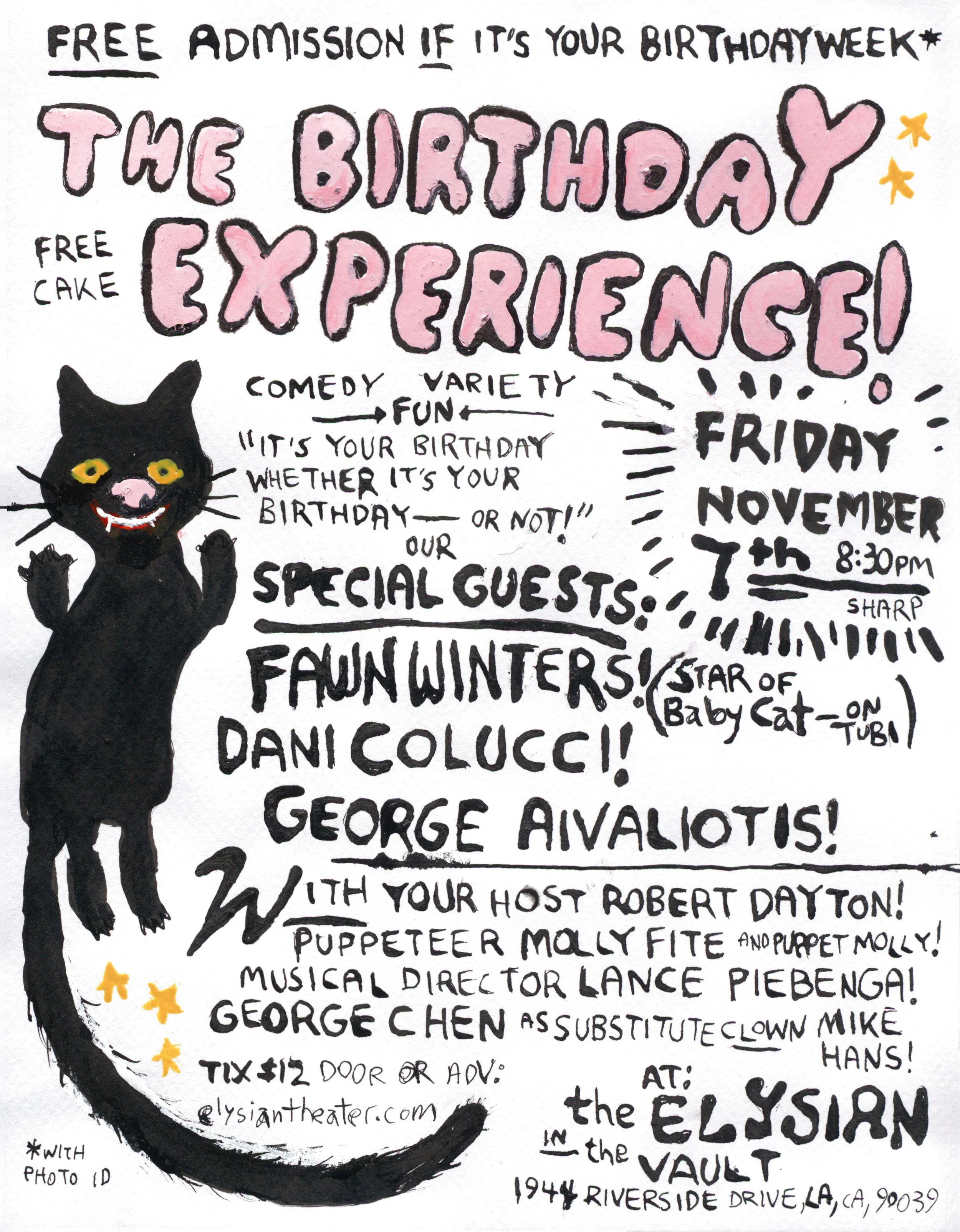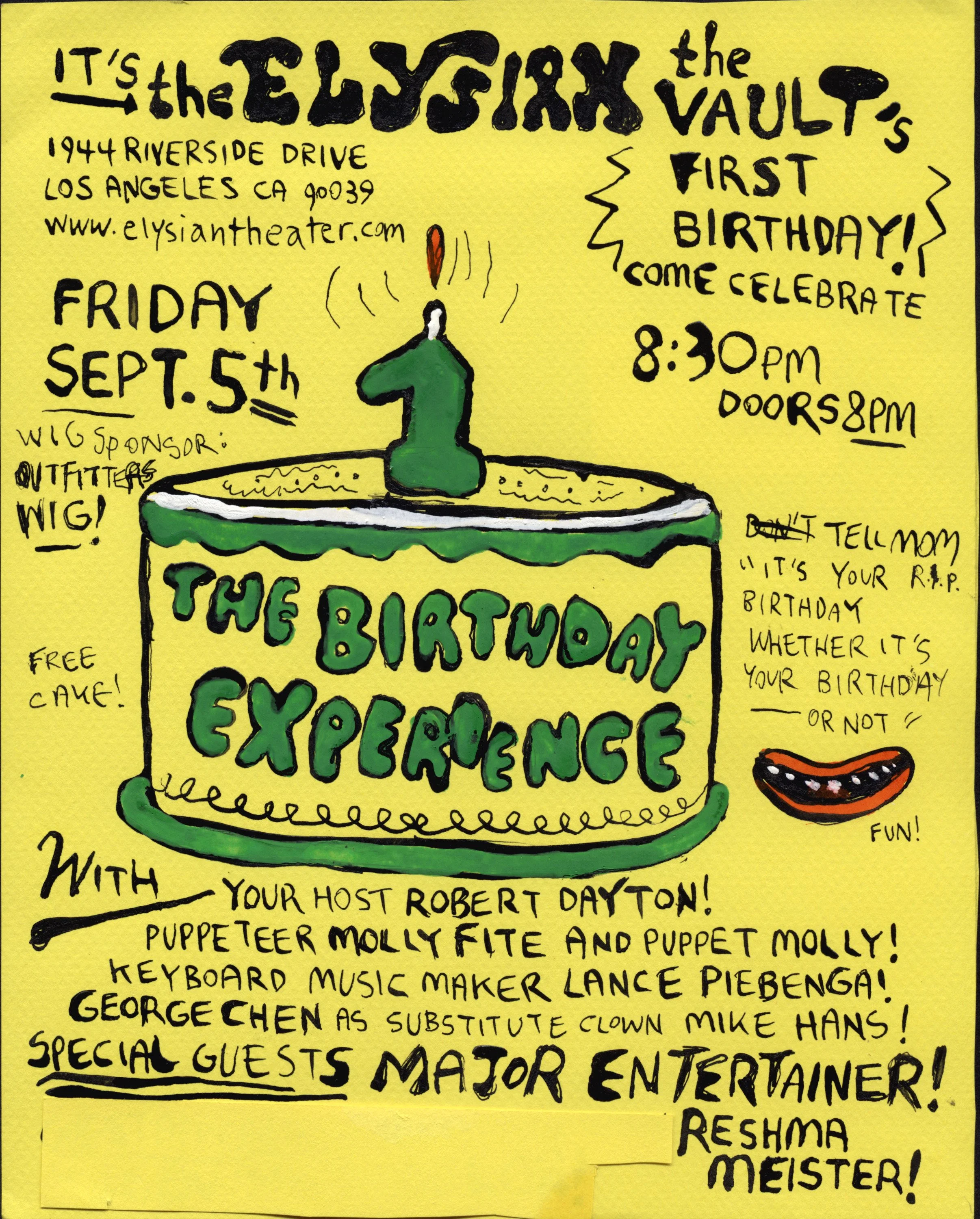SWEET DADDY SIKI: NORTHERN COUNTRY N WRESTLING!
Interview conducted by Robert Dayton in January, 2012
There is an old L.P. that some record collecting extremists treasure for the cover sleeve alone. Some record obsessives collect wrestling records such as The Crusher, Classy Freddy Blassie, Cap’n Lou and NRBQ, Bad Boy Butch Batson (an under-rated album released by Toronto’s own Beniffer Editions) and this particular L.P. It’s called “Sweet Daddy Siki Squares Off Against Country Music” and the man in question, former championship professional wrestler Sweet Daddy Siki, has been a karaoke host every Saturday afternoon, from 3:30 to 7:30 PM, at the Duke of York (1225 Queen Street East) in Toronto’s East End for almost twenty years. In the liner notes it asks the question “Who is the real Sweet Daddy Siki?” and I had the recent opportunity to ask him that question in person.
SDS: Well, first of all, he’s irresistible. And, unfortunately, happens to be me.
RD: Is he Mr. Irresistible?
SDS: Oh yeah, very much so. As you know, when I was wrestling I was more irresistible at that particular time. I notice today with wrestling, once in a while I watch it, some of the guys get up there and they little things the way I used to say things. I used to say, “I’m Mr. Irresistible, Sweet Daddy Siki. The ladies’ pet and the man’s regret.”
RD: You say that you used to be more irresistible? What changed?
SDS: What changed? Old Mother Nature. You get a little bit older.
RD: You’re still-
SDS: I know! I get a lot of attention when I walk down the street. Even now. A lot of people recognize me even though I retired in 1987. Luckily, I’m happy to say that I am in The Canadian Wrestling Hall Of Fame. If people would like to see things that I have done in my career all they have to do is look up The Canadian Wrestling Hall Of Fame, Sweet Daddy Siki.
RD: Stu Hart was quoted as saying that with your blondish white hair you were the black Gorgeous George.
SDS: I don’t know about that but I know that I was gorgeous at that time. Gorgeous. Irresistible. Gorgeous George, he was Gorgeous George. Look at me, I was completely different. I was irresistible. That’s the difference. My idol in wrestling always has been Nature Boy Buddy Rogers.
RD: When did he wrestle?
SDS: Then I’ll have to tell you my age! Just look on the internet. He was the world heavyweight champion as well.
(Nature Boy Buddy Rogers was also a key wrestling innovator with signature character traits and devices that wrestling heels still use to this day)
SDS: I remember during my wrestling days, I had just started wrestling, I refereed a match he had with Jersey Joe Wolcott. Jersey Joe Wolcott was the world’s heavyweight champion boxer. I don’t know if you remember him, just look him up on the internet and you’ll see who I’m talking about, he was really great, along with people that I knew, Ezzard Charles, he was the world’s heavyweight champion.
RD: Boxer? Had he ever wrestled before?
SDS: He tried. Ezzard Charles tried but it wasn’t in him. I remember Rocky Marciano came to Calgary and I was with him for quite a while. That’s all history. Jesse Owens, if you know who he was, he was a runner.
RD: He was in the 1936 Olympics.
SDS: I don’t think Hitler liked him too much. Anyways, I had the pleasure of meeting him.
RD: And you got to meet Nature Boy.
SDS: I was with Nature Boy for five or six years! We toured Ohio, places like that. I remember being in school and seeing him wrestle on television and I liked his style as well. What happened, I made no bones about it, I told him I liked the way he wrestled. He liked that. He brought me to New York. I wrestled Madison Square Gardens, places like that.
RD: He essentially mentored you?
SDS: Oh yeah.
RD: You’ve had an almost thirty year career.
SDS: Thirty one years. Mmm hmm. Travelled all over the world pretty well.
RD: And you retired in 1987 with few injuries?
SDS: The worst thing that I think happened to me, I was wrestling a guy named Hans Schmidt from Germany, he was a tough son of a gun. He kicked me and paralyzed the left side of my face. For ten weeks I couldn’t even close my eye. I can move it but not as well as the right side. That’s why I don’t smile so much.
RD: I could ask you why you retired, but that’s a long career in wrestling.
SDS: I could have went a little longer if I wanted to but I didn’t want to do that. Some of the wrestlers, they stick around until you hate ‘em, they’re still there! There’s new guys coming in.
RD: You’d often use a hand mirror?
SDS: It was a pretty good sized mirror!
RD: So, as big as your head?
SDS: Well, about half as big as my head anyway. I had a picture on one side. When I turned it around people would see the picture. But before I turned it around I’m looking at the picture admiring it! Then I turned my picture around, Jesus, that son-of-a-bitch!
RD: Your first album was on Arc, the direction was by Ben Weatherby.
SDS: He was the man who took care of all the sound. The guitar players were Mickey McGivern and Roy Penny. Roy Penny is playing today. Mickey McGovern’s son comes here to sing karaoke. When the big Nashville guys would come in alone, these guys would back them up. There’s another guy, a steel player named Mickey Andrews.
RD: These guys were part of the Arc stable. They must have been busy because Arc put out how many records?
SDS: They were busy.
RD: Arc put out countless albums. I would have to say, of all the Arc albums that I’ve seen, this has got to be the craziest album cover of any of them! You are facing off against yourself!
SDS: Ben thought of this.
RD: You have kept in touch with Ben Weatherby for decades.
SDS: Oh yes. He would phone me a lot of times. He’s been dead now for about a month, a month and a half. He went to The States with his wife and I think he got sick there, came back, went to the hospital, didn’t expect this. Whenever I would tour to Newfoundland with my band he’s the one that used to book me because once he left Arc he went out East. He lived in Newfoundland for a while then he wound up in New Brunswick.
RD: Arc was the premier country music label for Canada. Before Ben Weatherby signed you to Arc had you played country music at all?
SDS: No, no, but what happens here, even when I was in wrestling I’d get in my car, listen to the country station, learn the song, I used to sing the song. When I was a little boy we used to find records, old country records, and we used to play them. When my aunt and uncle picked us up and took us to California, well, that’s what she used to listen to! I was really surprised, so it fit right in.
RD: The liner notes to your first album mention a move of yours called The Beatnik Hangman.
SDS: Oh yeah. You know what that is? It’s a neck breaker.
RD: And that was your signature move?
SDS: That was one of them.
RD: I guess beatniks were popular at the time.
SDS: That’s right.
RD: Did you ever hang out in coffee houses at the time?
SDS: Noooo…
RD: It says that you spent so much time in New York’s Greenwich Village that you were “The Pad Lad.”
SDS: I know! That’s publicity!
RD: Just like how it says you were born in Kingston, Jamaica. When an artist like Charley Pride first came out, apparently no one knew the colour of his skin.
SDS: That’s right.
RD: What year did he start?
SDS: I think probably around ’66. Early 60’s anyway.
RD: When did your first album come out?
SDS: After him. I remember that once he came out I got in touch with some of the wrestlers. And he used to be around Texas a lot, Charley Pride, and he used to play golf with some of the wrestlers. Now I remember when he came here to perform. I made sure that I was down at the CNE grounds. He got out of his limousine and he looked up and he saw me. He said, “Boy, you don’t have to tell me who you are. I already know.” That was surprising to me! Oh yeah, he knew who I was. I have a picture of him in my car, he’s sitting down talking to the guy that’s with him all the time who takes care of a lot of his business, I forget his name but anyway, what do you know, this was at the Horseshoe Tavern. He played The Horseshoe.
RD: That was a popular country venue. Stompin’ Tom did a concert movie there.
SDS: That was the country music of Canada. The Horseshoe Tavern. Jack Starr had that. And I had the pleasure of playing that club. I played that club with my band. The band that was going to follow me in, Don Gibson. Not only that I have a picture, like I said, of Charley Pride and, whadyya know? Right up above him was my picture.
RD: Was there a colour line in country music? Not only were you a black country artist but you were a professional wrestler.
SDS: Let me put it this way when I came here, I shocked them all, I didn’t have to sing country. My hair, everything.
RD: it’s a glowing yellow-white coif, kind of a pompadour. And you also had the side laces on your wrestling boots, you normally see them on the front.
SDS: Oh yeah. That was my design.
RD: Why the sidelaces? Just for something different?
SDS: Something different. One the back there’s a strap around the calve.
RD: It just had a great visual effect, the red laces on the white boot. With these albums on Arc you got a country band together and did some touring?
SDS: Yes, I did. I went to Newfoundland. I did a little out West as well. When I got tired of touring that way I went back to wrestling.
RD: When you were touring with country bands were you doing all covers?
SDS: Oh yeah. I was doing some of everything.
RD: Jambalaya…
SDS: Oh yeah. Mind you, this album, I listen to this album now and I say, “My God, what a lousy album!” But you know what? You learn as you go. I was shocked when I first heard Conway Twitty’s first recordings. I couldn’t believe it was him! I couldn’t believe it! It didn’t sound nothing like him. You could tell it was really amateur. What he sounded like before he died, what a master, what a voice.
RD: You made other albums.
SDS: I have two more.
RD: Were they all covers as well? Any originals?
SDS: I have one original.
RD: Was it The Siki Strut?
SDS: No, no. Do you remember Art Snider (head of Chateau and Periwinkle Records)? He helped me quite a bit. During that particular time I should have found time to have training but they had me going all over the place.
RD: You probably had to wrestle and do country music at the same time.
SDS: Oh yeah.
RD: Did they ever combine on the same bill?
SDS: Oh no. I was going to tell you how I met Stompin’ Tom Connors but I’m going to wait because that’s going to be in my book. I’m going to tell it just the way it was. I’m going to open up a lot of eyes.
RD: Please! Have you started writing it?
SDS: Oh yeah. This is true. I have helped a lot of people- I’m not talking about Tom now- and sometimes they don’t appreciate it. They seem to forget. And I can’t forget anybody that has helped me. And I’m not ashamed to say it either. I’ll say whatever I want. If it’s true, it’s true. Like I say, I have other things to talk about. I’ve had a number of people approach me about doing a book. The book will be done. I’m going to do it.
RD: You had an original on the second or third album and you also had your entrance music “The Siki Strut.” Was that ever released?
SDS: No, I never released that. I should’ve.
RD: What led you to hosting karaoke at The Duke of York?
SDS: Oh. First of all, when I was playing in a band, some musicians- well, actually I’m a musician but I’m not, I guess I can say that because I’ve played and have been paid to do that. I see a lot of good, good musicians, far better than me! I’ll tell you something. How can I put it? I listen to lots of bands, lots of singers. There’s a lot of good singers and there ‘s a lot of good bands. The experiences that I had with my bands, I found that a lot of members, some of them care about the owners of the place or how much business they have. I always look at that. I don’t ask for money when I know it’s not there. I like what I do. I find that I’m not in this business to break any owner. I found that some people, they want to get the last dollar and when you don’t see it in the house, how can you ask the owner for more? He’s got to pay the whole staff in the place. The owner will probably go home with half of what one of the sidemen will make. I’ve always been that way and there are rules, unions have rules. I’m not greedy, let’s put it that way, and, thank God, I don’t have to be greedy. I really like what I do. I’ve had bands, some of the bands were good, some of them wasn’t that good. I’m not the greatest singer. I might say that I have a 24 Carat voice but when you come right down to it, I’m not going to go against somebody and say I’m the best. What I’m coming to is this, whatever time you’re going to start on that stage that don’t mean you get up on the stage and start tuning your guitars because normally it would take the guys that I had sometimes twenty minutes or half an hour and the owner comes to me and says, “Siki, what’s wrong with these guys?” I speak to the band, they get pissed off at me, can you imagine? I’m paying them and every time you turn around they got their hands out for more, more, more, more! Holy cow. So I got rid of them, I’m glad I did. I started my deejaying. I got out of my deejaying. Do you really want to know the truth?
RD: Sure.
SDS: I like young people, that’s why I’m around young people, that’s why I don’t want to slip around and go to sleep not knowing what they’re talking about. Say a song comes out this week, a hot song, and you play it next week. Oh! They say, “That’s old! This is new, will you play that?” Takes a week and the song is old. I say, “Tell you what, why don’t you copy that and I’ll play it. “ But then again, I’ve got to hear the lyrics, too. A lot of them don’t like it! I will not embarrass myself and I will not embarrass anybody who listens to my karaoke or dee jaying. I spoke to some of the rappers and I said, “Why do you guys use those kinds of words? Why do you sue stuff like that?” One told me this, “Oh no, we spell it a different way.” I said, “I don’t give a damn how you spell it! It sounds the same.” Lucky I’m not as politician. I would bar things like that.
RD: Then you got into karaoke.
SDS: Karaoke was out a year before I got into it.
RD: When was that?
SDS: That was in the 80s.
RD: You were still wrestling?
SDS: Til ’87. When I retired I got into dee jaying. A guy came to the hotel where I was playing and he was doing karaoke. I said, “Oh my God, I wouldn’t do anything like that.” I remember a time when I said I wouldn’t deejay either. When I had a band we figured that was kind of low, especially when there’s a band playing. But then I started listening, it fits just fine because people have got to be doing something when the band takes a break. When I got into karaoke it was almost like I just started wrestling again. I enjoy doing my karaoke. I don’t have to sing. I like singing but I don’t have to. I still like working my machines and doing karaoke.
RD: This is a historic establishment. You’ve been here twenty years. Any stories?
SDS: You know what I find, not only here, other places that I do karaoke, you have a big crowd, they always think that they’ve got to follow one another all the time. But what happens here, say I finish at 7:30, I start at 3:30 and some people come at 7 and these people have been here all evening, some of these people really get pissed off! If they come in late I still get them up. A lot of times those people who’ve been there all evening, they don’t like it. They don’t realise that those people probably had to work late just to come in here. They’re going to spend their money, too. Some of them get so mad it’s not even funny! That means they are only looking out for themselves. And it’s too bad, it’s that way. They should be able to understand that they’ve got to get other people up, too, because you’ve got to make money for the hotel and the bar then the owner, he doesn’t feel funny about giving you a raise sometime or he don’t have to give you a raise, he already made the deal.
RD: Why do you love karaoke so much?
SDS: I have a chance to sing any song that I want to sing and so many of the songs that I have on my karaoke I’m quite familiar with. I remember when Hank Williams was quite big. It’s really something how some people are today but maybe some people are this way because maybe they have been approached wrong. I meet them everyday. I remember when I was wrestling I was flying in from New York. I could tell you a story you wouldn’t believe! My whole career, it’s something, this is why I’ve got to write this book, I did things that are not even believable and I went through stuff that’s unbelievable! I remember flying in to Chicago, there’s a hotel where a lot of the entertainers would stay and I’d stay there quite often, at least once or twice a month. This particular time I came through the front door of the hotel and there’s a room to the left. I was tired, it wasn’t even funny, I was really tired. I’m walking through, I pass that door, a guy says, “Hi, Sweet Daddy.” I say hi and I kept walking. I stop. I say, “It can’t be!” I walk back, I couldn’t believe my eyes. Who do you think it was? Count Basie! I apologized to him like I’ve never apologized to anybody. He says, “That’s okay. I understand.” He’s got to understand, he’s an entertainer. I felt so bad about it. I said to myself from that particular day, anybody speak to me I’m going to make darn sure I know who they are, I’ll look. I was telling you earlier about meeting Jesse Owens. I met so many famous people a lot of people don’t even realize. They only read about it in their books.
RD: Now you started wrestling in the United States. When you moved to Canada, were there any other black wrestlers?
SDS: oh yeah, I would imagine. Yeah, there was one! There was one called Luther Lindsay! He was wrestling in Alberta for Stu Hart. Stu really liked him. I wrestled for Stu Hart as well.
RD: I read that you were part of Stampede Wrestling.
SDS: I went all the way up to Alaska with Stu Hart. He had all the se kids, I watched these kids grow up. He and his wife used to send me Christmas cards with the whole family. When Brett’s in town he usually calls me up. I brought him down here twice.
RD: If you come here to karaoke you might see Brett Hart!
SDS: He couldn’t make it for karaoke. They met him at the bar. He’s just a regular guy, a darn good guy. A month ago they had the wrestling at the Rogers Centre. Brett phoned me, he got his neck broke, he can still move around, but still he got it broke, he’s lucky. They wanted to see me. Vince McMahon. They made a CD. I was on the CD talking about Edge because I trained Edge. Even some of the other wrestlers that I hadn’t seen in ten years, they were there. I got in the ring, along with the other wrestler, I must have been in the ring for twenty or thirty minutes.
RD: Great!
SDS: Not only that, I’m going to get paid for it!
RD: What an amazing life!
SDS: Do you remember when Adrian Adonis got killed? It was in Newfoundland. I was supposed to be on that trip. I would have been right in that same van. What happened, I woke up, I had already made the deal with the wrestling promoter. It was a bear man, he used to wrestle bears. The night we were supposed to leave I was sleeping. I woke up right away because I had dreamed I was in my car and there was a cliff, I had gone over the cliff and I’m standing up on the bank looking down, my car was down there, “How am I going to get that car back up?” You know what I did? I phoned him, I phoned him and I told him I can’t go. He said, “Alright Siki, I’ll see you when I get back.” Adrian Adonis and the Kelly twins, they lived in hamilton, they were wrestlers as well. I got part of this story from the survivor. One of them got killed.
RD: One of the twins?
SDS: Yeah. There was a deer or moose coming across the highway. They were going to this town to promote it. The sun was shining bright. They hit him. When they went off the highway there was a bridge. They were going fast enough, they were in the air. The bear man asked one of the twins, “Do you mind if I ride up front with your brother?” They said, “No.” And the bear man got in the front. It went off thee bridge in mid-air. The brother who was driving looked back at his brother. And they hit the other side. The bear man got killed. I think he got his neck broken (tape cuts off)
RD: Anything else you want to say about karaoke?
SDS: I hope that people come in and enjoy themselves. With me doing karaoke, I’ll make sure to get them up if they come in.
